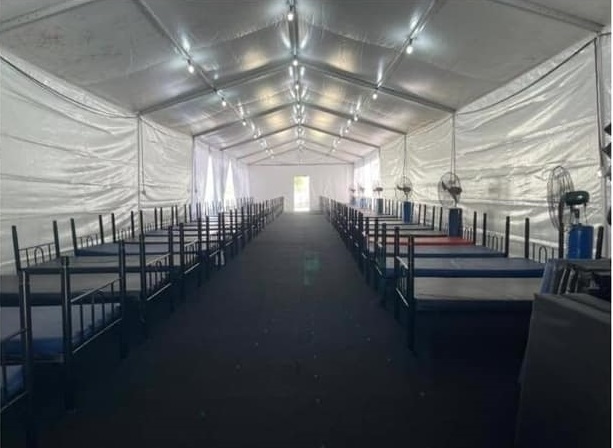
Edited by Suraya Abdullah
KUALA LUMPUR: The recently published Auditor-General’s 2021 Report (Series 2) brought to light not only disturbing revelations about the level of corruption and flaws in the management of the country’s finances, but also the urgent need to carry out institutional reforms.
According to the Report, the Ministry of Health, with approval from the Ministry of Finance after a Cabinet meeting on March 25, 2020, had paid RM30 million to Company 260790-T (Pharmaniaga Logistics) to procure 500 ventilators estimated at RM50 million. Of the 500 units, only 136 were delivered; and of the 136, only 28 ventilators were in usable condition. The supply of 136 ventilators had cost RM20.1 million, and an additional RM3.97 million was also approved to upgrade certain ventilators, pushing the cost of the overall procurement of 136 ventilators to RM24.07 million.
Highlighting the matter, the Center to Combat Corruption and Cronyism (C4 Center) in a recent statement said it was appalled to see so many loopholes and mistakes involved in the procurement of ventilators at the height of the COVID-19 pandemic.
“These are not merely issues removed and out-of-touch from the general society, but something that directly affects and impoverishes the lives of Malaysians,” C4 Center said, urging further investigations into the matter.
“To put these figures in perspective, almost half of the total budget was spent to procure less than one-third of the target number of ventilators. Was the initial RM50 million estimation the result of a miscalculation, or were there leakages along the way and if so, what led to these leakages and who made them?” the C4 Center questioned.
What is more alarming is that the government could not claim for the losses from the defective ventilators, estimated at RM13.07 million, “because there were no documents on the appointment of the procurement of ventilators between Company 260790-T and the MOH, and the said procurement was done based on the company’s Corporate Social Responsibility (CSR).”
The lack of documents also meant that the auditors were unable to verify the exact roles and responsibilities of Pharmaniaga Logistics in their dealings with the ventilator manufacturers.
These events that all date back from between 2020 and 2021 are only now being revealed in 2023, years ahead when the damage sustained as a result of poor governance can no longer be completely remedied, C4 noted, exhorting institutional reforms as a permanent solution to ensure transparency and accountability in our governance.
“It is difficult to overstate the degree to which good governance principles were flouted in this series of events, all of which speak of the inability of existing institutions to prevent wastage and leakages at this scale,” C4 Center said, calling on the parties responsible to be held accountable.
The Report had disclosed that Pharmaniaga Logistics took upon the role of supplying the ventilators through direct negotiation, and direct negotiation in the public procurement process has long been criticised as being opaque and shielded from scrutiny due to the lack of a publicly-accessible tender that would allow independent assessment of the merits by which the tender recipient was chosen.
“This lack of transparency presents a high conflict of interest risk whereby politicians would be able to offer tenders to companies that they have a financial stake in. Pharmaniaga Logistics’ parent company, Pharmaniaga Bhd, was itself chosen to procure the Sinovac vaccines by way of direct negotiation,” C4 said, further adding that such an act is simply unacceptable and is extremely vulnerable to abuse.
The use of “CSR” is also slowly emerging as a worrying trend as an easy way to secure government funding at the expense of Malaysians’ well-being and security. It is pertinent to note that the MySejahtera application which has been besieged with controversy was also conceived as a CSR project.
At its core, all of these institutional gaps could simply be distilled to reveal a callous attitude on the part of the government towards its citizens. So many lives could have been saved and the RM13.07 million could have been redirected into alleviating the burdens of those who were already suffering financially as the national economy was crippled by the pandemic.
C4 Center reiterated its call for a Procurement Act to be tabled and enacted as soon as possible, to limit the circumstances which allow for direct negotiations and scope of powers granted to the government to carry out “emergency procurement.”
–WE